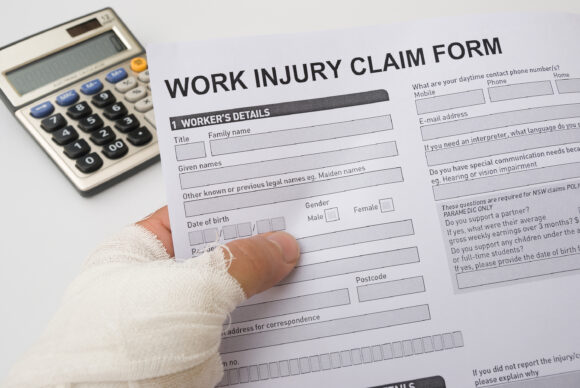The Iowa Supreme Court on Friday reinstated a deputy workers’ compensation commissioner’s decision to bar reports that were submitted too late by experts who weren’t certified, reversing decisions by the district court and Court of Appeals.
The high court said in a unanimous decision that the deputy commissioner had correctly acted within his discretion to exclude the untimely report because it’s late entry into evidence would have been unfairly prejudicial to the defense. The justices rejected findings by the district and appellate courts that found the deputy abused his discretion because he could have left the record open for enough time to allow the defense to file responses.
The opinion noted that “we have previously held that the prejudice resulting from the untimely designation of an expert need not be great to justify the commissioner’s exclusion of that expert’s testimony.”
Lorri Hagen was injured while working for Serta/National Bedding Co. in February 2017. A car weighing “upwards of 350 pounds” rolled over her right foot.
An independent medical examiner opined that Hagen reached maximum medical improvement on July 22, 2019. Hagen filed a petition seeking continuing workers’ compensation benefits from Serta and its insurer, Safety National Casualty Co. She also asked for another independent medical examination.
The workers’ compensation commissioner scheduled an arbitration hearing for Sept. 25, 2020. Under Iowa’s Administrative code, Hagen was required to “certify” — meaning give notice to the other parties — any experts at least 120 days before the hearing. She was also required to submit any expert reports at least 30 days before the hearing.
On Sept. 10, 2019 — 15 days before the scheduled hearing — Hagen sought to introduce a report by Dr. John Kuhnlein that stated she was permanently and totally disabled. She submitted a report by vocational expert Tom Karrow on Sept. 11. Hagen had not certified either one of her experts.
A deputy workers’ compensation commissioner refused to allow Hagen to introduce the expert reports. He ruled that Hagen suffered a 60% permanent disability as a result of the workplace accident, rejecting Hagen’s claim that she was permanently totally disabled.
Hagen filed an administrative appeal, but a workers’ compensation commissioner affirmed the deputy’s decision. The commissioner found that Hagen’s late submission of the reporters was an “unfair surprise” that prejudiced the employer. The commissioner said that Kuhnlein was the only medical expert to opine that Hagen was totally disabled.
Hagen appealed to the Worth County District Court. Judge Christopher Foy reversed the commissioner’s decision, finding that the refusal to enter the reports into evidence was an abuse of discretion because the deputy commissioner could have eliminated any “prejudice” by giving the defense some time to review the late reports. A panel of the Court of Appeals agreed and affirmed the ruling, with one judge dissenting.
Safety National and Serta took the case to the state Supreme Court.
The high court’s opinion said there was no abuse of discretion by the deputy commissioner.
“The commissioner’s decision to exclude untimely evidence is entitled to deference because Iowa law tasks the commissioner with adopting and enforcing the rules and procedures necessary to implement Iowa’s workers’ compensation laws,” the opinion says.
The court said while late reports aren’t necessarily prejudicial and have been allowed in the past, there was ample reason to accept the deputy commissioner and commissioner’s decisions.
“Hagen’s failure to timely certify Dr. Kuhnlein and Karrow as experts or submit their reports left Serta in the dark about the experts they were supposed to be preparing for and little time to evaluate and respond to these experts’ reports,” the opinion says.
The Supreme Court reversed the Court of Appeals and remanded the case to the district court with instructions to affirm the commissioner’s decision.
Was this article valuable?
Here are more articles you may enjoy.


 Hackers Hit Sensitive Targets in 37 Nations in Spying Plot
Hackers Hit Sensitive Targets in 37 Nations in Spying Plot  Portugal Rolls Out $2.9 Billion Aid as Deadly Flooding Spreads
Portugal Rolls Out $2.9 Billion Aid as Deadly Flooding Spreads  Canceled FEMA Review Council Vote Leaves Flood Insurance Reforms in Limbo
Canceled FEMA Review Council Vote Leaves Flood Insurance Reforms in Limbo  US Will Test Infant Formula to See If Botulism Is Wider Risk
US Will Test Infant Formula to See If Botulism Is Wider Risk 